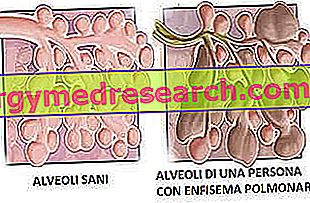What is the Pycnogenol
Picnogenol is a mixture of antioxidant substances extracted mainly from the bark of maritime pine ( Pinus pinaster ) and from the seeds of Vitis vinifera .
The most representative components of pycnogenol are oligomeric pro-anthocyanidins (80-85%), catechin, taxifolin and phenolic acids.

Property
The properties ascribed to pycnogenol are essentially antioxidant, anti-inflammatory, anti-platelet aggregation and capillarotropic (preserves the collagen of the blood capillaries from the damaging action of the enzyme elastase); these extracts are therefore included in the supplements intended for the treatment of edema, capillary fragility, cardiovascular diseases (atherosclerosis, ischemic heart disease, etc.), and in peripheral circulation disorders, such as venous insufficiency and its manifestations (tired and heavy legs, itching), swellings).
Pycnogenol, and more generally blueberry extracts, are also used successfully in the treatment of diabetic retinopathy.
More recently, pycnogenol has also been proposed in the treatment of hyperactivity disorder and attention deficit in children, but its use in this current and controversial condition has yet to be clarified. Integration with pycnogenol may also be useful in the treatment of asthma in children.
By improving the body's antioxidant defenses, pycnogenol could also be useful in enhancing athletic performance in endurance sports, such as running or cycling, especially accelerating the recovery phase.
Mode of use
The proposed dosages of intake range from 60 to 300 mg per day (usually divided into three doses of 100 mg of pycnogenol).



